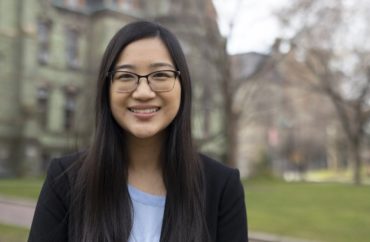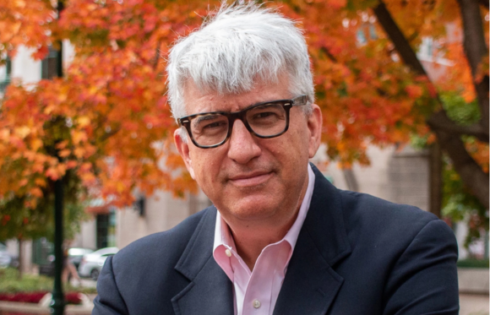
ANALYSIS: Spend more money on responding to hate, researchers suggest
Seventy-seven percent of Asian students at the University of Pennsylvania reported they experienced harassment or discrimination since the outbreak of COVID, according to a new study from two students and a professor at the Ivy League school.
“77% of students reported being victims or witnesses of anti-Asian hate or discrimination since spring 2020,” the summary published online by Tiffany Tieu, Hope Cho and Professor Melissa Hunt stated. “We found that individuals with greater ethnic identity felt more distressed while experiencing anti-Asian hate, suggesting that ethnic identity serves as a risk factor.”
“On the other hand, those acculturated to America showed lower levels of fear while experiencing anti-Asian hate, suggesting that acculturation acts as a protective factor,” they wrote.
While the researchers argued that these results showed the need for Penn officials to invest more in a campus response, such as diversity training, the study’s authors wrote they were not reporting that the harassment happened on campus.
The research team claimed there has been a “significant uptick in anti-Asian hate and violence,” since the outbreak of COVID. The most common forms of bias were “verbal harassment,” “COVID Racism/Joking” and “Multiple Themes.” Some were subjected to “Avoidance/Stares” as well.
“There are few studies on college students and anti-Asian hate, but more specifically, no information has been collected on the experiences of Asian students at Penn,” the researchers stated. “Our study brings more awareness towards the anti-Asian hate and violence happening in this country. We hope our findings can help promote safety and well-being on campus and ensure that our Asian students feel supported during this time.”
“We didn’t claim anti-Asian discrimination had increased specifically on Penn’s campus, and no, we don’t have data on the experiences of Penn students prior to COVID,” Professor Hunt told The College Fix via email when asked if the research team had data on anti-Asian bias before the outbreak of COVID, since the paper said there had been a rise in it since. “However, there are clear national trends that are well supported by data (cited in article) on this issue.”
One of the studies cited to show an increase in anti-Asian discrimination in the United States also does not have a baseline of harassment or bias incidents prior to the outbreak of COVID. The Fix reviewed a copy of a longer form of the draft paper which is currently under review by a journal.
The Stop AAPI Hate project, cited by the researchers, tracks “hate incidents” anonymously reported by individuals but only began in March 2020. Nearly 90 percent of the incidents are “verbal harassment,” “shunning,” or “avoidance,” a particular form of bias hard to verify since Americans were encouraged to avoid crowds of people due to fear of getting the COVID virus.
Professor Hunt deferred to Tieu (pictured), the student, for further comment, though the Penn researcher did not provide further comment as of October 3.
Tieu told The Daily Pennsylvanian that her and Cho wanted to help her peers “feel heard.”
“I wanted to collect the experiences of Penn students, make them feel heard, and bear witness to their experiences, and see how our findings could be applied to support the Asian community here,” Tieu told the campus newspaper. “This topic definitely hit home for me and Cho since we are members of the Asian American community ourselves.”
“(The study) is validating because I think a lot of people minimize Asian discrimination,” Cho told the campus newspaper. “We’re excited that we’re able to create a platform for these like voices to be heard, or turned into something positive at Penn.”
Students were recruited through an online psychology department database and the survey was promoted to Asian student clubs on campus, though Hunt said the researchers did not use “snowball sampling.”
Snowball sampling refers to study participants recruiting others to participate, which could skew the results of the research.
MORE: UCLA won’t explain how it used taxpayer funds meant for Asian discrimination research
IMAGE: University of Pennsylvania





Please join the conversation about our stories on Facebook, Twitter, Instagram, Reddit, MeWe, Rumble, Gab, Minds and Gettr.